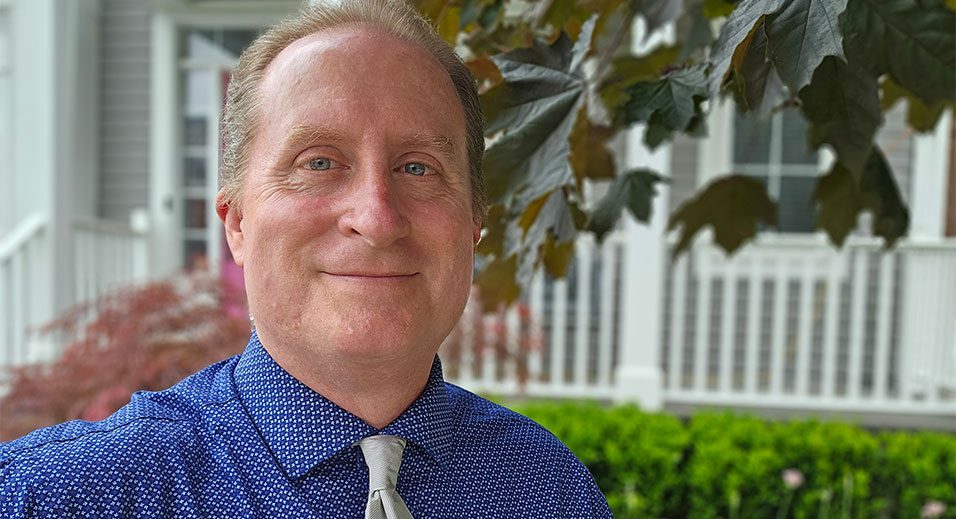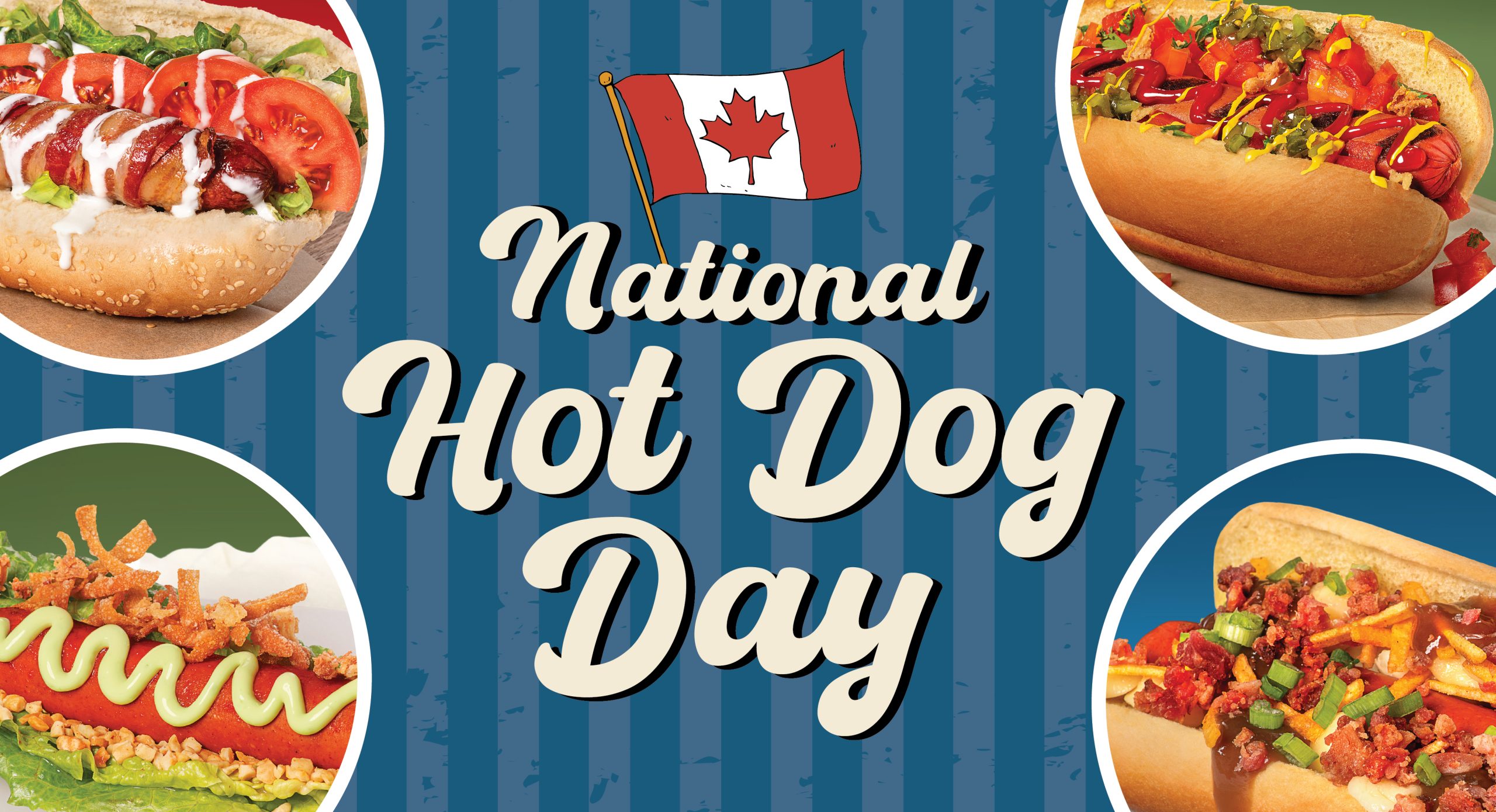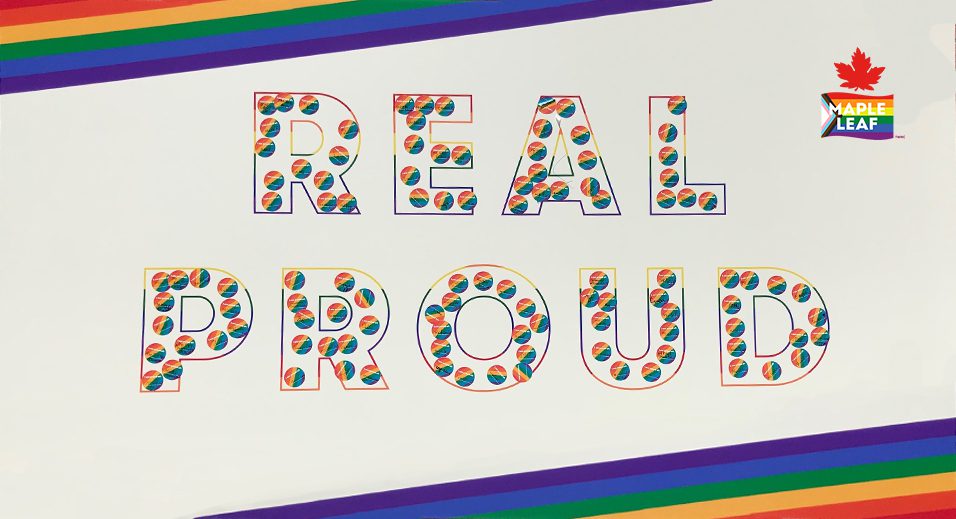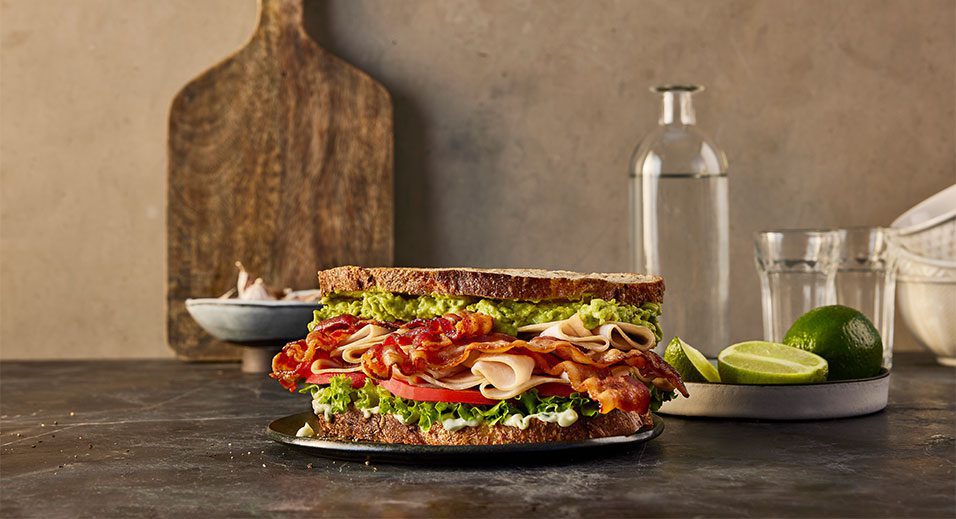Learn how Shane embodies sustainability best practices through organizing tree planting volunteering opportunities, becoming an Energy Star Certified homeowner, and much more!
Shane McKeen is a Specialist, IS Finance & Reporting on the Information Technology team. With nearly two decades of experience at Maple Leaf Foods, Shane brings a financial background evolving in the field of Information Solutions (IS) and is in a unique role combining his expertise in Finance and IS.
Outside of Finance, Shane is also a Sustainability Hero! He takes his role in our EcoAction Employee Resource Group very seriously, and loves to educate others and give back in creative and sustainable ways, both inside and outside of work.
At home, Shane is married and has two children, and says he hopes they see and are inspired by all the environmental work he does — especially hoping that his sustainability efforts rub off on them!
Read on to learn more about Sustainability Hero Shane!
What brought you to Maple Leaf Foods and what has made you stay?
While looking for a new job opportunity, Maple Leaf Foods was on the list of one of the best corporate culture organizations.
The respect that Team Members have for each other to complete a common goal makes this a great place to work. Now, in my 19th year at Maple Leaf, I continue to enjoy my experience and love to proudly tell people where I work.
What role does Sustainability play in your job in Finance?
The biggest impact I’ve seen in our department is the reduction in paper being used, which saves money directly and indirectly from the electricity needed to power the printers and toner. The secondary benefit is the reduction of paper being recycled.
I’m also proud of an initiative I implemented years ago to convert our monthly internal reporting system that used to be more than 300 pages of printed out booklets — now, they’re delivered as electronic PDFs. We used to print and bind every monthly report and I was a key player in becoming more eco-friendly by stopping that process!
What does sustainability at Maple Leaf Foods mean to you?
I see it as our opportunity to do our part in reducing our carbon footprint while supporting our initiative to be the most sustainable protein company on Earth. We know that we can bring in our own experiences and learn about new technologies that can help us on our journey. The best part is that this can be practiced at all of our plants and in our corporate offices across North America.
How do you practice sustainability in your everyday life – inside and outside of work?
One of the first things I did was convert my home into an Energy Star certified property. This certification means that, according to Enbridge Gas, we use less utilities than 80% of other homes in our area and our size – in comparison to how much heat, gas, and electricity they use.
In my home, we have upgraded the insulation over the garage and throughout the house, and replaced new windows which are top notch and keep heat in during the winter and cold air in during the summer. This makes sure the air is properly circulating within the house and not being lost through any empty cracks in windows or insulation.
I’m also very excited to be in the process of installing solar panels, which means we can use less energy off the grid. In fact, we put energy onto the grid, because solar panels absorb more energy than we use in my house for the day, so the rest goes to the grid — this is called a bio directional metering. On really sunny days, the energy used in my home is from the solar panels, and any additional energy goes back to the grid as a clean, renewable source. In the winter months when there’s less sun, we use ‘solar credits’ to offset the lack of solar production on our energy bill.
Just over a year ago, I swapped my gas-powered vehicle to an electric vehicle. The additional cost of the vehicle has been offset by the savings on gas and maintenance!
Finally, on a more simplistic front, my family practices using reusable water bottles, sandwich bags, and straws on a daily basis.
Are there any sustainability projects you’re currently working on?
I’m a proud member and on the forefront of helping out with the actions of the EcoAction Employee Resource Group (ERG) at Maple Leaf Foods. Through my participation in this ERG and the opportunity as a Maple Leaf employee to receive two volunteer days per year through the Raise the Good in the Neighbourhood volunteer program, I’ve organized a few tree planting days through Partners in Project Green (PPG) where I’m the ambassador for Maple leaf Foods. I’m proudly the first point of contact that PPG will come to when they’re looking for more volunteers from our organization.
Over the last couple of years, I’ve organized volunteering opportunities for more than 30 Team Members and their family members for a total of 1,500 trees planted in local communities. We do this twice a year, once in spring and once in fall, and it’s a blast!
For Earth Day 2024, EcoAction wanted to celebrate the occasion and give something to our Team Members — something educational but beyond just a piece of paper that would get read and then recycled. We created a hand-out card that contains wildflowers built right into it with instructions on how to plant and bloom the seeds. Protecting wildflowers is critical as they are important for pollinators, insects and wildlife, which ultimately contribute to a healthy biodiverse ecosystem.
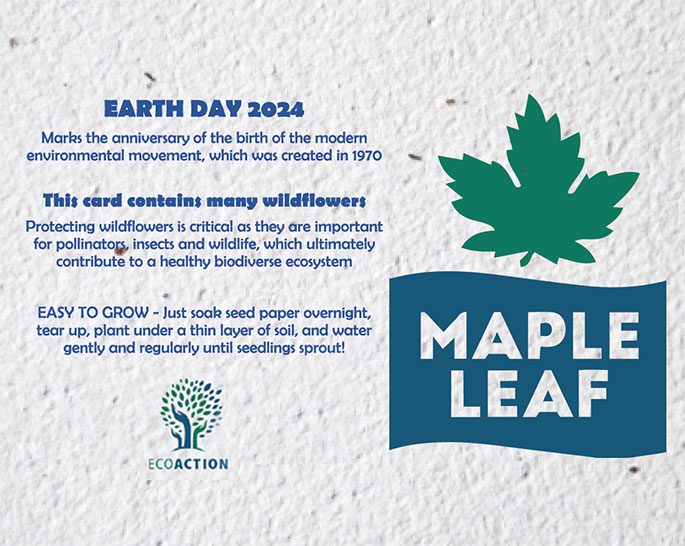

What do you look forward to for the future of sustainability at Maple Leaf Foods?
I’m most interested in our anaerobic digestion initiative. This will help reduce one of our biggest carbon footprint impacts, which is emissions derived from manure.
Anaerobic digestion is a very cool process that works much like a cow’s stomach. It takes all the waste from our livestock and some of our other organic waste like fats, oils, and grease, and with the help of bacteria and a little bit of heat, breaks down and decomposes all the organic matter and turns it into ‘digestate’. During this process, biogas is also emitted, which we then capture, and can then convert it into Renewable Natural Gas (RNG). This RNG can be used for a drop-in replacement to Fossil Natural Gas and used as heating for our barns, fuel for our trucks, etc. And then, the digestate can then be used as organic fertilizer back on the fields. Anaerobic digestion is a truly circular process that can not only reduce our carbon footprint but create renewable energy and fertilizer at the same time!
